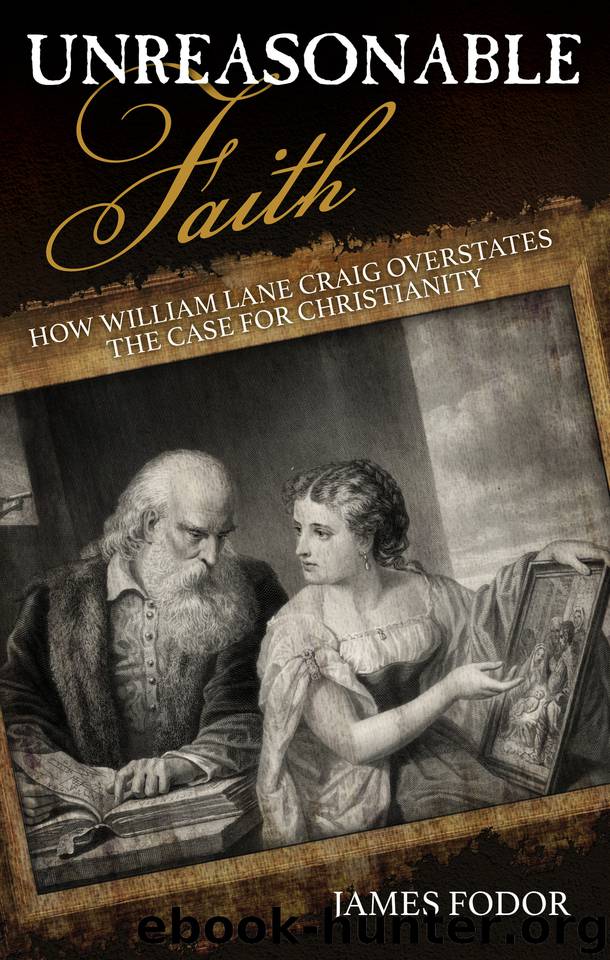Unreasonable Faith: How William Lane Craig Overstates the Case for Christianity by Fodor James

Author:Fodor, James
Language: eng
Format: epub
Publisher: Hypatia Press
Published: 2018-06-17T16:00:00+00:00
Relativism and Universalism
Craig says that for moral values to be objective they must be right or wrong ‘independently of whether anybody believes it to be so’. Obviously by ‘anybody’ Craig must mean ‘anybody apart from God’, since Craig’s account of morality is dependent on the judgements of God, and presumably God is ‘somebody’. The idea seems to be that it is not sufficient merely for some individuals or groups of people to believe that something is right or wrong; rather there needs to be some objective sense in which facts of rightness and wrongness are independent of parochial human opinion. Behind this is an assumption that if God believes something to be right or wrong, then it really is objectively right or wrong. Human opinion is deemed to be subjective and insufficient to ground morality, while divine judgement is considered objectively transcendent. While this premise is likely quite intuitive to Craig, it is nevertheless an additional assumption that he does not really defend in any depth. In particular, others have argued that truly objective morality requires a standard independent of anyone’s opinion – including God. I discuss this issue at more depth in the subsequent section covering premise three of Craig’s moral argument.
Download
This site does not store any files on its server. We only index and link to content provided by other sites. Please contact the content providers to delete copyright contents if any and email us, we'll remove relevant links or contents immediately.
The remains of the day by Kazuo Ishiguro(7588)
Tools of Titans by Timothy Ferriss(6986)
The Black Swan by Nassim Nicholas Taleb(6222)
Inner Engineering: A Yogi's Guide to Joy by Sadhguru(5923)
Giovanni's Room by James Baldwin(5911)
The Way of Zen by Alan W. Watts(5818)
The Six Wives Of Henry VIII (WOMEN IN HISTORY) by Fraser Antonia(4807)
The Power of Now: A Guide to Spiritual Enlightenment by Eckhart Tolle(4783)
Astrophysics for People in a Hurry by Neil DeGrasse Tyson(4634)
Asking the Right Questions: A Guide to Critical Thinking by M. Neil Browne & Stuart M. Keeley(4612)
12 Rules for Life by Jordan B. Peterson(3763)
The Ethical Slut by Janet W. Hardy(3525)
Skin in the Game by Nassim Nicholas Taleb(3489)
Housekeeping by Marilynne Robinson(3429)
The Art of Happiness by The Dalai Lama(3400)
Double Down (Diary of a Wimpy Kid Book 11) by Jeff Kinney(3292)
Skin in the Game: Hidden Asymmetries in Daily Life by Nassim Nicholas Taleb(3280)
Walking by Henry David Thoreau(3243)
12 Rules for Life: An Antidote to Chaos by Jordan B. Peterson(3211)
